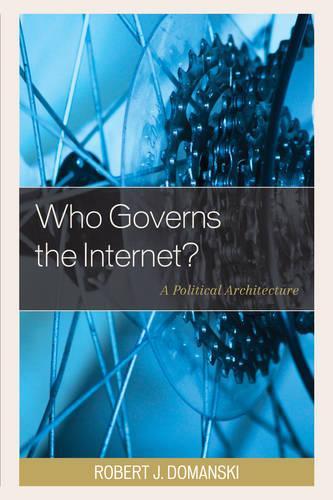
Who Governs the Internet: A Political Architecture
(Paperback)
Available Formats
Publishing Details
Who Governs the Internet: A Political Architecture
By (Author) Robert J. Domanski
Bloomsbury Publishing PLC
Lexington Books
17th July 2017
United States
Classifications
Professional and Scholarly
Non Fiction
Politics and government
Media studies
Electronics engineering
004.678
Physical Properties
Paperback
222
Width 149mm, Height 232mm, Spine 17mm
327g
Description
There remains a widespread perception among both the public and elements of academia that the Internet is ungovernable. However, this idea, as well as the notion that the Internet has become some type of cyber-libertarian utopia, is wholly inaccurate. Governments may certainly encounter tremendous difficulty in attempting to regulate the Internet, but numerous types of authority have nevertheless become pervasive. So who, then, governs the Internet This book will contend that the Internet is, in fact, being governed, that it is being governed by specific and identifiable networks of policy actors, and that an argument can be made as to how it is being governed. This book will present a new conceptual framework for analysis that deconstructs the Internet into four policy layers with the aim of formulating a new political architecture that accurately maps out and depicts authority on the Internet today. Foremost, it will seek to draw a distinction between those actors who have a demonstrable policymaking authority versus those who merely wield influence. The book will then apply this four-layer model to an analysis of U.S. national cybersecurity policy, post-9/11. Ultimately, it will seek to determine the consequences of these political arrangements and governance policies.
Reviews
Domanski's book presents a thoughtful deconstruction of the power brokers on the Internet. His model sets an important foundation for scholars to explore the implications of the Internet in multiple disciplines. -- Kevin M. Wagner, Florida Atlantic University
Author Bio
Robert J. Domanski is an instructor of political science and computer science at the City University of New York.
